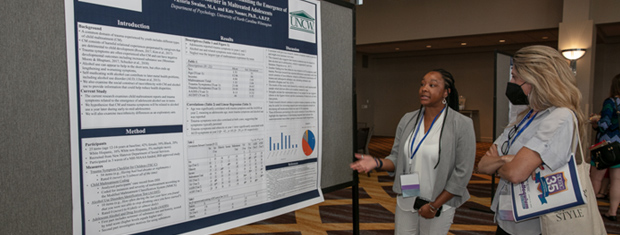




The APSAC Advisor is a peer reviewed quarterly news journal for professionals in the field of child abuse and neglect.
The APSAC Advisor provides succinct, data-based, practice-oriented articles that keep interdisciplinary professionals
informed of the latest developments in policy and practice the field of child maltreatment. It is designed to highlight
best practices in the field and publish original articles and current information about child maltreatment for professionals
from a variety of backgrounds including medicine, law, law enforcement, social work, child protective services, psychology,
public health and prevention in the U.S.
 If you wish to learn more about submitting an article to the Advisor, please click here.
If you wish to learn more about submitting an article to the Advisor, please click here.
This library contains Advisor issues dating back to the first issue in 1988. The most recent issue appears at the top.
Scroll down to select past issues by year and issue number. Once a publication appears in the box, you
can use the Enlarge button to open the document in a new window or tab (depending on how your browser is set up).
This will allow you to view the document with larger print.
To print a document, first use the Enlarge button to open the document in a new window or tab. Then use your browser's Print command.
To return here from a new tab, close the tab. To return from a new window, click your browser's Back button.
In the listing below, click on a year and issue number to see the articles in that publication.
2025 Number 2
The Use of Media in Forensic Assessment of Children
This article provides guidance for forensic interviewers and evaluators about the use of media (also called props, aids, and tools) in forensic assessments. It assumes that these professionals determine when in the assessment to use media. The article describes the rationale for the use of media, cites research that supports the use of media, and describes specific media and how to use them during the beginning phase, maltreatment phase, and closure phase of the assessment.
The Use of Anticipatory Guidance in Forensic Interviews
Using anticipatory guidance, a method of providing a youth with information about what to expect, is an easily buildable skill that can enhance a youth’s experience of the forensic interview. This article describes methods of reducing a youth’s anxiety throughout the forensic interviewing process by using anticipatory guidance. Specific methods are described for anticipatory guidance during each phase: the pre-interview, interview instructions and expectations, narrative event practice, transition to the topic of concern, gathering details, taking a break/ communicating with the MDT, clarification and closure, and presenting physical evidence (if applicable). The goal of anticipatory guidance is to minimize negative impact for youth while conducting legally sound interviews. Anticipatory guidance reframes the forensic interview as something we do WITH youth instead of TO youth.
Understanding Spanish-Speaking and Bilingual Children in the Forensic Interview
This article discusses cultural competency principles and best practices when conducting forensic interviews with Spanish-speaking and bilingual children. Among the factors that interviewers need to consider are the many regional dialects of Spanish, the differences in social interaction between bilingual and monolingual children, the additional time required for Spanish-language interviews, the effects of a cultural practice of storytelling connected to family history, the ambiguity of some Spanish words, and code switching between English and Spanish in interviews. One important reality is that children find it very difficult to access and articulate feelings in a language in which they have less emotional connection.
This article reviews selected findings from research published from January 2022 to February 2025 that pertains to forensic interview questions and related methods. The article examines new research on a) practice narratives about children’s birthdays, b) different types of yes-no questions and an alternative to them, c) different types of prompts and transitions, d) different types of questions that use the word time, e) other types of questions, and f) wait times and breaks. The article then presents a brief list of recommendations from these researchers.
Literature on Child Forensic Interviewing from January 2022 to February 2025: Other Topics
This article reviews selected findings from research published from 2022 to February 2025 that pertains to other aspects of child forensic interviewing not directly related to questioning methods (a companion article examines research on questions and related methods). The review is divided into five broad categories: specific child populations, child psychological factors, professional factors, forensic interviewing supports, and general reviews of the field. The article then discusses implications for child forensic interviewing practice.